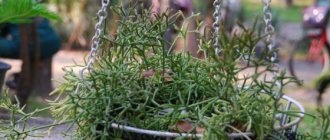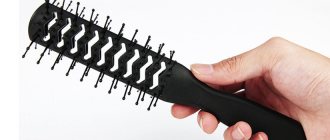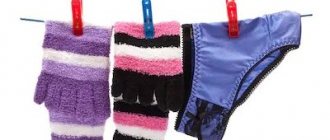To write correctly in Russian without making spelling mistakes, a solid knowledge of the rules is sometimes not enough. There are many cases where spelling depends on the meaning of the word. The similarity of sound and morphemic composition of lexemes of different meanings - paronyms - can be misleading. For example, sometimes it is difficult to determine when and how “buttery” is written, and in what cases it is better to write this word with the letter “e” in the suffix - “buttery”.
Use of the word oily
So, what does oily mean, and how is this word spelled? It’s easy to remember: oil means:
- consists of oil, contains oil: oil cream, oil paints;
- runs on oil: oil filter, oil cooler, oil lamp.
Example sentences
- The butter roses on the cake looked like they were alive and smelled delicious.
- By September it got colder, so I had to buy an oil heater.
- The walls, painted not with oil paint, but with lime, smelled strongly.
- The car urgently needed repairs: the oil filter was clogged, and soot hung in flakes on the spark plugs.
- An oil pump is needed to create pressure in the lubrication system.
- Shadows danced comfortably on the walls from the warm light of the oil lamp.
- The butter sponge cake recipe was written on a piece of wallpaper.
- The oil stain was ingrained into the upholstery and could not be removed by any means.
One or two H's in the word oily? It’s even easier to remember here: the adjective oily is formed from the root “oil-o” using the suffix “-yang”. And in Russian, all adjectives with the suffix “-an/-yan” are written with only one N. The exception is three words: glass, tin, wood. Any other adjectives - with one H:
- leather,
- planed;
- linen;
- ruddy, etc.
Denominate adjective in text
The word “oil” is often found in various texts in Russian. This trend is observed both in fiction and in information literature, for example, in articles. If you deal with them often, then there will be no difficulties with how to write “oily” correctly. Example sentences containing the word “oily”:
- In the massage parlor you can order an oil film wrap.
- Why is the oil filter almost entirely made of paper?
- An oil stain on a T-shirt cannot be removed even with very expensive powder.
- It is important to schedule the oil engine to compare performance.
- There is nothing difficult about putting the correct emphasis on the phrase “oil pump”
- The artist painted the figure of a girl on canvas with oil paints.
- I glanced at the oil bottle that was sitting on the kitchen table.
- I tried to highlight the word “buttery” as a participle, but I realized that this was a profound mistake.
- You need to properly oil the oil cooler, otherwise it will stop working.
- The oil thermostat contained homemade butter and buttery cheese.
- Don’t try to butter me up with your speeches - I won’t fall for that.
- Repeating the word “oil” in a sentence is unacceptable, so it is recommended to use synonyms.
- In a fragment of the work it was said that the oil solution was spilled on the sofa in the living room.
- If you apply oil cream to your face every week, over time, wrinkles will become less noticeable.
- The oil-painted canvas left several questions about its origin.
If you read several such sentences every day, then over time spelling the phrase will not cause any problems. But to speed up the learning process, it is also recommended to analyze each example, trying to explain why the letter “i” is written in the suffix in a particular word and not “e”. The same applies to sentences in which the second paronym is used.
Use of the word oily
The verbal adjective oil is formed from the imperfective verb “oil” with the suffix “-en” and is written with one letter N, like all verbal adjectives without a prefix and a dependent word:
- oil - oily, oily, oily;
- saw - sawn, sawn, sawn;
- paint – painted, painted, painted;
- bleach – bleached, bleached, bleached;
- smoke - smoked, smoked, smoked.
The suffix - “-yan” or “-en” is determined by the meaning of the word. oily – means “coated with oil”, “soaked in oil”, “stained in oil”: oily fingers, oily pancake.
Oily can also be used in a figurative meaning: flattering, obsequious, lustful: oily look, oily speech.
Sometimes the week preceding the Maslenitsa holiday is called Maslenitsa Week.
Example sentences
- The pancake was hot, and Petka dropped it with the oily side into the frying pan.
- From the warmth and hearty food, Ivan softened, and his gaze became sleepy and oily.
- - Where?! – the mother shouted menacingly, seeing that Zhenya was reaching into the sugar bowl with his oily fingers.
- His oily eyes darted from one young woman to another, and his fingers nervously fiddled with his collar.
- During Shrovetide week you are supposed to go to your mother-in-law for pancakes.
- The rye flatbread with a buttery crust smelled intoxicating, and my stomach began to gurgle.
- The millet porridge was not a success this time: it turned out to be too oily and salty.
Spelling with two "nn"
At least two previous words are written with one -n. However, everything is not so simple. There is also a spelling with two “nn”: oil and olive.
Maslenny is a now rarely used passive past participle, associated in its origin with the verb “oil.” The participle usually has a dependent word, thanks to which it can be distinguished from an adjective: butter pancake - butter pancake (by whom?) by grandma.
The most commonly used form is the passive participle “oily” with the prefix: oily pancake, oily fingers.
And one more spelling option: olive - with a double “nn” and an “and”. This adjective is formed from the noun “olive” using the suffix -n-. Means something characteristic of the olive or prepared from its fruit. Since the stem of the noun ends with the letter “n,” the result is a double consonant at the junction of the stem and the suffix: olive + n + y → olive.
As you can see , the spelling “oily” is not the only correct one . Depending on the lexical meaning, you can choose among the options: oily, oily and even olive. Knowing the spelling rules regarding the spelling of adjective and participle suffixes will help with choosing the correct spelling.
In any case, if you have any difficulties, you should seek help from an explanatory or spelling dictionary.
Use of the word oily
Oiled with two НН in the suffix is written if it is a passive participle. In this case, there is always a dependent word: oiled with a brush, oiled with a mother, etc.
In addition, if the adjective oiled is formed from the imperfect verb “oil” (what to do?), then we write one N. But if the verb of the perfect form is “oil, oil, oil” (what to do?), then the verbal adjective not only receives a prefix, but also two Hs in the suffix: oiled, oiled, oiled.
Example sentences
- The pancakes buttered by my mother turned out to be much tastier.
- Plain paper, oiled with a brush, easily turns into baking paper.
- Paint stains can be easily wiped off with an oily rag.
- Pour the dough into a frying pan, oiled with butter.
- The mirror was covered in marks from oily fingers.
Examples of using OP
The word “masleny” is found much less frequently in Russian than “maslyaniy”, but this does not mean that sentences using it should not be considered. If a person sees the difference in the lexical meaning, then he will never make a mistake in spelling the suffix, and will also be able to find other paronyms in the text without any problems. Here are a few such suggestions:
- I stained the clean tablecloth with my oily hands, which greatly offended my mother.
- The oily rag lay on the table, as if it belonged there.
- An oiled frying pan is perfect for frying fish.
- My uncle’s buttery speeches could appease anyone, but not my mother, who knew him since childhood.
- To get a buttery voice, you will have to practice eloquence for a long time.
- The thoroughly oiled napkin was used only to remove the remaining grease from the stove.
- Have you tried buttering your already buttery toast to make it even tastier?
- There was something in the buttery speeches of the stranger that attracted me with great force.
- To properly clean an oiled plate, you will need a lot of detergent.
- In her oily eyes one could see a bottomless sea, which beckoned me.
- If you always listen to the oily statements of politicians, you can believe in many fables.
Having studied these examples, it becomes clear that in some cases the word is used with a double “n” in the suffix. This happens when the adjective appears together with dependent words. According to the rules of the Russian language, in this case the OP should always be written with a double “n”. In all other cases, the design will not cause problems even for a novice writer. It is important to be able to distinguish the lexical meaning in different cases, and also to remember that the suffix -en refers to verbs, and -yan to nouns.
Paronyms are one of the most interesting, but at the same time quite difficult topics in the Russian language, since it requires memorizing a large number of lexical meanings, which are usually easy to confuse. However, if you remember that words are formed from different parts of speech, then significant difficulties in spelling should not arise. It is enough just to think for a few minutes about whether the adjective is denominal or verbal, and only then draw any conclusions. It may seem difficult at first, but if you deal with paronyms often, you will master the topic in a matter of days.
Kochia _
) fam. Amaranthaceae
Name: in honor of the German botanist Wilhelm Daniel Joseph Koch. Description: Up to 80 species are known, growing in North America, Europe, Asia and Australia. Annual and perennial rhizomatous herbaceous plants, sometimes subshrubs. Stems are erect, highly branched. The leaves are arranged in alternate order, entire, narrow, linear to threadlike, pubescent. The flowers are small, inconspicuous, without bracts, 1–5 in glomeruli, collected in spicate or paniculate inflorescences. The fruit is a single-seeded nut. There are about 1400 seeds in 1 g.
Kochia broom - K. scoparia (L.) Schrad. = Bassia scoparia
It grows wildly in the south of the European part of Russia, in the Crimea, the Caucasus, the west and southwest of Siberia, the Far East, Central Asia, the Mediterranean, Central Europe, China, India.
A spectacular annual decorative foliage plant. The bushes are regular, elongated-oval, 75–100 cm tall. Stems are erect, densely branched. The leaves are small, linear-lanceolate, narrowed at the base into a petiole, emerald green, turning red with the onset of autumn frosts. The entire plant is pubescent. Tolerates haircuts well. The flowers are inconspicuous. The fruit is a nut, the seeds remain viable for 1–2 years. In culture since 1629. The photo shows the variety "Green Lace". In ornamental gardening, its most widespread variety is hairleaf ( var. trichophylla (Voss) Boom
), often called “Summer cypress” and Child’s kochia. In culture since 1754.
Location: Prefers a sunny position, although it can tolerate light shade. Soil: requires loose, nutritious soil, relatively drought-resistant. Reproduction: by sowing seeds in open ground or in flats; seedlings are grown in greenhouses. Dive into 7 cm pots, 1 piece at a time, followed by transshipment into 9–11 cm pots. Planting in the ground is carried out maintaining a distance of 20–30 cm. Use: recommended for single plantings, small groups, hedges of any configuration.
Source:
flower.onego.ru - encyclopedia of ornamental and garden plants.
Additional information on the websites:
- vashsad.ua - kohia - annual cypress;
- fazenda-online.ru - kochia, cultivation, care;
- vyatkasad.ru - kohia - fluffy splendor;
- botanichka.ru - Kochia broom - “summer cypress”;
- lepestok.kharkov.ua - kochia in landscape design.
Removing machine oil stains
1. Prepare a mixture of magnesia powder and ether, after which the product, thoroughly mixed until smooth, is applied to the stained area and gently rubbed in. After the ether has evaporated, the remaining magnesium is brushed off the fabric with a brush.
2. Aviation gasoline or kerosene is rubbed into the stain in a circular motion. After it disappears, the item should be washed.
In addition to the so-called “folk” remedies, you can use commercial detergents to remove oil stains from clothes. One of them should be applied to the stain and left for 30-40 minutes.
The simplest and most logical way to remove grease stains is to use stain removers specially designed for this purpose.
( 2 ratings, average 4 out of 5 )











